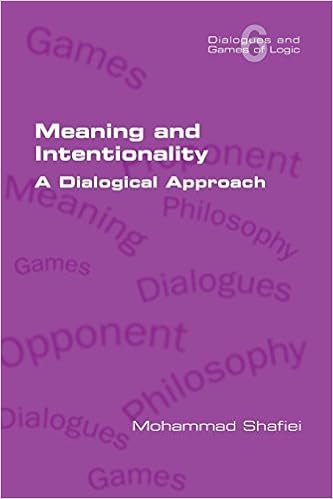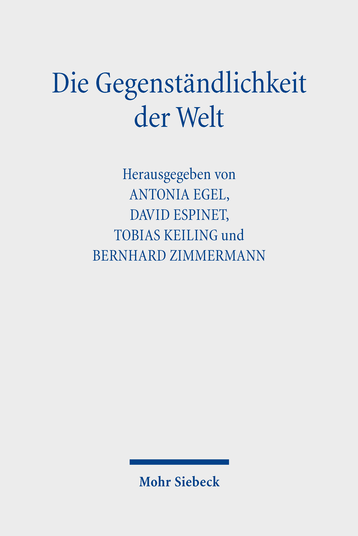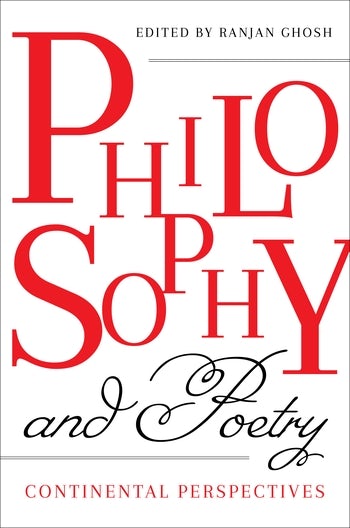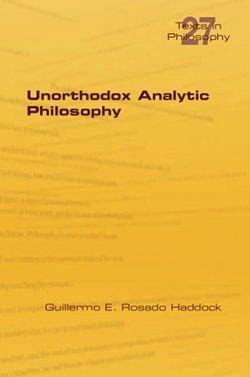 Meaning and Intentionality: A Dialogical Approach
Meaning and Intentionality: A Dialogical Approach
Dialogues and Games of Logic, Volume 6
College Publications
2018
Paperback
358
Reviewed by: Iraklis Ioannidis (University of Glasgow)
In Meaning and Intentionality: A Dialogical Approach, Mohammad Shafiei’s project is to develop a theory of meaning. The book is divided in four chapters preceded by an introduction and followed by a conclusion. Already in the introduction, the author makes it clear that he will propose a theory of meaning methodologically grounded in the transcendental phenomenology of Edmund Husserl. According to Shafiei, any theory of meaning should deal with the meaning of logical constants and thus one of the main objectives of this work is to use the transcendental method to explain the constitution of these logical ‘entities’ (180).
In the first chapter, “The Possibility of Inner Dialogue and its Primordiality,” Shafiei sets himself the task of arguing that an inner language is possible. By inner language “we mean a language which can be originated in solitude, i.e. by a person considered in isolation, thus this language is ‘inner’ because it is not originally created for external uses, namely uses in community” (9). Initially, this might appear surprising as to why the author would start exploring the possibility of inner dialogue. Yet, “if we can demonstrate that inner dialogue is primordial in a way that it can be accomplished without any prior dependence on outer dialogue it means that the outer, concrete language, i.e. the ordinary language, is not a necessary condition for the possessing concepts and performing intellectual activity” (8). And, to take it further, this would mean that we could investigate the a priori or eidetic structures through which a person, as transcendental intentionality, constitutes their meanings.
As one could expect from a point of view of the history of philosophy, the author starts with exploring Wittgenstein’s so-called private language argument. Shafiei provides a long analysis of the argument based on the mainstream reading of Wittgenstein according to which there can be no possibility of private language. Shafiei’s task is to prove otherwise. This task starts in the section entitled “Husserl’s Acceptance of Genuineness of Inner Dialogue” (27). Although “Husserl has not dealt with the subject of inner dialogue and its probable importance in full details,” Shafiei attempts to pull out textual evidence to justify that we can infer from Husserl’s writings that such inner language is possible – or that “the possibility of inner dialogue is taken for granted” by Husserl (28). This attempt starts by citing Derrida who “equates the possibility of phenomenological reduction with the possibility of interior monologue” (28) and then tries to show how Husserl’s concept of expression as acts which produce meaning relates to various uncommunicative acts which could reveal the possibility of inner dialogue. In this chapter, Shafiei provides an extensive analysis of different ways that ‘meaning’ has been (philosophically) approached. This analysis allows him to advance an interesting conceptual distinction between ‘indication,’ ‘sense,’ and ‘meaning.’ When it comes to ‘sense’ Shafiei proposes to use of the term for meaning “in the sense relating to real or possible phenomena” (40). ‘Sense’ is related to reference and indication which is different from expression as the primitive act of meaning. Moreover, “indication depends, at least on its origin, on communicative interactions” (53). Meaning thus becomes “the correspondent product of a primordial act of expression” (69) whose “archetype” (88) is the capacity of “inner dialogue” which is wordless (ibid.) and which makes the phenomenon of private language possible.
Chapter Two, “Meaning and the Unintuitive,” provides a discussion concerning expressions – in the phenomenological sense as meaning-making, intentional acts – and attempts to show which of these expressions are primordial and which are not.. In this chapter, Shafiei provides a thorough analysis of the differences between signitive intention, categorial, and aesthetic synthesis (128). Meaning can be constituted through signitive intentions (96) which are not directly related to immediate sensibility (aesthesis) or what in classical phenomenology is called givenness or intuition. Such “unintuitive thought” (162) allows Shafiei to extend Husserl’s thought and show how Husserl, while not having set for himself “the task of providing a phenomenologically acceptable logical system does not mean that we would accept the science of logic as it is given” (177). And this science of logic is to be linked with the primordiality of expression at the transcendental level.
Having explored how there can be a genuine private language of a transcendental constituting intentionality, and having shown how this intentionality has a dialogic structure, Shafiei moves on to introduce dialogical logic “in the line of the phenomenological method in order to reach a comprehensive framework for logic and to explain the meaning of logical entities as well” (180). This takes place in Chapter Three, entitled “Phenomenology and Dialogical Semantics.” The chapter begins with an attack on Stephen Strasser’s interpretation of Husserl in The Idea of Dialogal Phenomenology. Shafiei is not content with the revision of phenomenology proposed by Strasser as it is deemed to be based on “psychologism and naturalism” (191). Following this attack there is a short introduction on dialogical semantics and an analysis on the meaning of logical connectives (207). The remainder of the chapter constitutes an attack on Dummett’s intuitionism and the verification theory of truth. While the author agrees that intuitionist logic can take us closer to pure logic than classical logic does, he finds Dummett’s pragmatism wanting because for Dummett “it is not the speaker who makes a relation between a sign and a meaning” (230) – “for Husserl this is [sic] the speaker who makes such a relation – of course in an original manner” (ibid.).
Finally, in Chapter Four (“Dialogical Apophantics: Formal Analyses”), Shafiei engages in an extensive exploration of the meaning of logical operators and functions. The chapter features an interesting discussion on negation, which distinguishes between weak and strong negation and by exploring their relation with absurdity. Strong negation “occurs in a judgment asserting that p is objectively rejected” and the weak negation “occurs in a judgment asserting that there is no evidence for p” (261). Consistent with the overall proposed outlook of the book, Shafiei attempts to show which type of negation is primordial. By such an analysis, Shafiei provides the ground to move into a more technical analysis of “the phenomenological explanation of some logical connectives” (326). Such an explanation allows the tools of logic to be explained through the phenomenological account of intentionality and thus link them to the possibility of private language as the structures of a transcendental intersubjective expression.
Despite the author’s erudite knowledge of Husserlian texts, there are couple of issues with respect to the way he approaches them. The way that Shafiei grounds his theory of meaning on transcendental phenomenology makes it somewhat difficult to assess. One can accept Shafiei’s reading of the Husserlian texts and engage directly with the validity of his theory of meaning; or, one can engage with his hermeneutic approach and then draw implications to his derived theory. Essentially, one can assess whether his theory of meaning is indeed grounded in Husserlian phenomenology or whether the theory of meaning itself has merit despite its hermeneutic evaluation. For this review, I shall highlight a couple of hermeneutical points. Since Shafiei’s interpretation of Husserl’s phenomenology comes to be the ground of/for (t)his theory of meaning then such choice is warranted.
Shafiei reads Husserl as if he is a proponent of transcendental intentionality and subjectivity throughout his work. To what extent is this accurate, or better yet, to what extent does such a reading do justice to Husserl’s entire body of work? To use another phenomenological sense of ‘indication’ which Shafiei does not take into account, there is no indication or appreciation of the fact of the different ways that Husserl approached the issue of transcendental subjectivity. In the Logical Investigations Husserl makes it clear that the subject is constituted in reflection, while subjectivity is not something in particular but consciousness as (a) transcendental field. Consciousness, in these investigations, is an undifferentiated stream whereas the ‘ego’ or ‘I’ is constituted when an act-experience is put in relief – or to use Husserl’s term ‘naturalized’.[1] The ego in the Logical Investigations is a transcendent (intended) object, not something transcendental. A similar approach is indicated in Experience and Judgment where identity does not exist in itself but progressively determined. Just like anything else, any kind of object or object substrate on which ‘logic’ is grounded is temporal.
Issues of temporality appear in Husserl as early as in the Logical Investigations (1900-1). However, in Shafiei’s reading of Husserl there is no discussion about temporality at all. Neither is there any discussion on protention and retention and how these could relate to ‘pure logic’ or the possibility of a private language. Now, this is of crucial importance especially because these structures are related with the issues of apprehension, constitution, institution and intuitive fulfillment. The issue of primal constituting in Husserl – i.e genesis[2] – is of vital importance. Are there primordial ‘objects’ given or are they (always) constructed? Shafiei passes over in silence all the discussions of givenness, schematization, analogizing apprehension, motivation, repetition and signitive fulfillment on the grounds that “it is not the theme of Experience and Judgment” (138). Shafiei takes this work as bedrock for his project of a Husserlian inspired theory of meaning yet all these concepts are extensively investigated in this work and Shafiei negates them altogether.
Another worry is that this theory of meaning would require the a lot of charity to be stamped as authentically inspired by classical phenomenology. In Husserl’s terms such theory which takes logic primordial grounded in expression without any kind of bodily involvement in this expression would, in Husserl’s terms from Experience and Judgment be a manifestation of the “irreality of objectivities of understading.”[3] If anything, Husserl reinstated, that is, brought back our attention to the philosophical importance of the body and its horizons. The body is utterly absent from Shafiei’s theory of meaning. Can a theory of meaning be phenomenological without the body?[4] While it is interesting to see developments in logic inspired by Husserl, one should be careful about what kind of logos Husserl is talking about. Logos for Husserl is not only intended as logic in the modern sense. For instance, Shafiei claims that the meaning of numbers like “1 and 2 are able to be grasped by the intuition” (100) and that they have an immediate fulfillment. This cannot be an authentic Husserlian idea. In the Ideas Husserl wonders whether it would be possible that the world be given itself arithmetically if we had not learnt to count it, that is constitute it, in (particular) numbers. He also problematizes whether the principle of non-contradiction should be placed under the epoche. None of this is mentioned in Shafiei’s logical analyses. Certainly, ascribing a thought of immediate fulfillment of ‘logical’ constitutions to Husserl cannot not be controversial. To give only an example, the origin of negation in Experience and Judgment is traced by Husserl to the passivity of receiving sensuous content. The heterogeneity of the given marks the primitive limit, the genetic moment of negation and not a moment of expression.
Another worry derives from the perspective of the history of philosophy. Shafiei accepts the mainstream analytic reading of Wittgenstein’s private language argument, according to which Wittgenstein is trying to show us that a private language must be impossible. This is a transcendental reading – that private language must be impossible. But one could read these investigations differently.[5] Later Wittgenstein does not make an argument but explores the extent to which a private language is possible. We can read his writing as an invitation to think how could such a private language be possible. In one way this is Shafiei’s own project minus the transcendental necessary universalization. Derrida’s analysis of Artaud’s theater of cruelty is exploring this possibility of private language. An authentic expression of a language-less transcendental subjectivity would not be some kind of reasoning or logic but pure emotional expressions, discharges of feeling as Nietzsche would have it. Similarly, for Lévinas, a self-contained hypostasis (self) which does not have an opening to an other hypostasis (other) does not give full support to his argument as Shafiei thinks (58). Lévinas talks about the ‘dialogue’ of oneself as another in terms of contentment, that is feeling, not in terms of expression.[6]
Overall, Shafie’s attempt to provide a ‘theory’ of meaning grounded in the Husserlian phenomenology can provide a lot of insights to those who take phenomenology cognitively or logically in the modern sense of the term. There are several inspiring points of discussion in his technical rendering, or constitution in the phenomenological sense, of Husserlian ideas. However, the contribution of this attempt to more recent phenomenological discussions which appreciate the importance of the body in the constitution of meaning is minimal.
Works Cited:
Caputo, John D. 1999. God, the Gift, and Postmodernism. Indiana: Indiana University Press.
Derrida, Jacques. 1967. Writing and Difference. London: Routledge, 1967.
Hanfling, Oswald. 2002. Wittgenstein and the Human Form of Life. London: Routledge.
Husserl, Edmund. 1948. Experience and Judgment. London: Routledge and Kegan Paul.
Lévinas, Emmanuel. 1987. Time and The Other [and additional essays]. Pittsburgh, PA: Duquesne University Press.
Sartre, Jean-Paul. 1993. Being and Nothingness. Reprint First Edition. Washington: Washington Square Press.
—. 1988. The Transcendence of the Ego: A Sketch for a Phenomenological Description. London: Routledge.
Steinbock, Anthony J. 1998. «Husserl’s static and genetic phenomenology: Translator’s Introduction to Two Essays.» Continental Philosophy Review, Volume 31, Issue 2, 127–134.
Welton, Donn. 1999. «Soft, Smooth, Hands: Husserl’s Phenomenology of the Lived-Body.» In Welton, Donn. The Body. Malden, MA: Blackwell, 38-56.
[1] Cf. Sartre’s analyses (1988); (1993) and Marion’s avowal in Caputo (1999).
[2] Cf. Derrida (1967) and Steinbock (1998).
[3] Cf. Husserl (1948 253-270).
[4] Cf. Leder (1990) and Welton (1999).
[5] Cf. Derrida (1967) and Hanfling (2002).
[6] Cf. Lévinas (1987).








